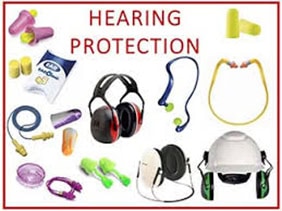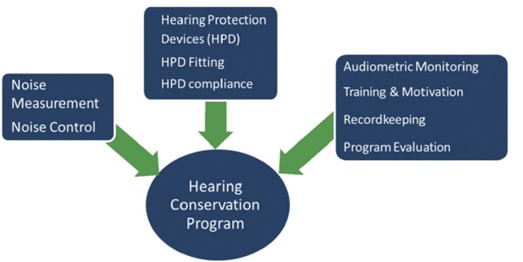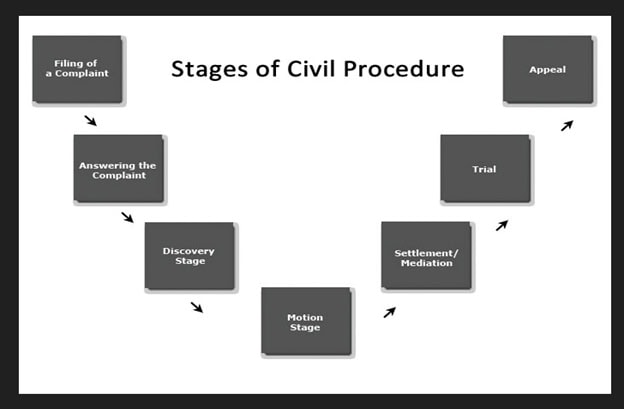- 800.525.2690
- [email protected]
- Mon - Fri: 8:00 - 4:30
Forensic Audiology and Industrial Hearing Conservation

By: Robert M. Traynor and Garry G. Gordon
Article first published in Workplace Material Handling and Safety magazine.
In today’s culture there are always workers that sue companies for alleged injuries incurred in the workplace. Even though there is an active hearing conservation program in place there can be a lawsuit for hearing loss and tinnitus.
The hearing conservation program manager, in coordination with a Council for Accreditation in Occupational Hearing Conservation- (CAOHC) certified professional supervisor, may offer an impeccable example of conducting hearing monitoring, instruction and provision of hearing protection devices and other components within their program and still be sued by workers. If a hearing loss or tinnitus claim happens to your company, it is critical to have the support of an experienced professional legal team, including a forensic audiologist, to determine viability of the claim and work with the attorneys to facilitate an appropriate strategy to deal with the litigation.
The Role of the Forensic Audiologist
Experts, such as forensic audiologists, use scientific knowledge, experience, and research skills to discover proof (evidence) that will assist in solving civil or criminal legal cases. A long-time forensic audiologist defined forensic audiology as simply “The application of audiological knowledge to questions of law”1. Although applying audiological knowledge to questions of law is what professional forensic audiologists do, there is more to it than simply providing audiological knowledge and expertise. Those that train expert witnesses state that the role of the legal expert witness is to assist the “triers of fact.”2. The triers of fact may be the judge and/or the jury depending upon the circumstances in the case.
Thus, the definition of forensic audiology is the use of audiologic training, experience, and specialized certification that produce skills to assist attorneys, judges, and jurors in understanding audio vestibular subject matter for use in obtaining a just settlement in criminal and civil litigation3.
Expert witnesses have various jobs in a case4. They can assist with:
- – Assessing the value of a case
- – Formulating claims, counterclaims, and defenses
- – Drafting discovery requests and responses
- – Reviewing documents
- – Challenging the other side’s expert witnesses
- – Developing and refining case strategy
- – Identifying, evaluating, and calculating damages
- – Evaluating and responding to opposing claims and theories
- – Aiding the triers of fact through trial testimony

Why Would a Worker Sue?
Claims should not be taken lightly and can be extremely expensive. These suits are typically pursued if the worker (the plaintiff) and their attorney feel they can prove the company (the defendant) failed to adequately protect the worker from noise exposure or blast hazards. While the worker would have to provide evidence that the company was negligent, a worker might sue a company for hearing loss or tinnitus for several reasons:
Workplace Noise Exposure: If the worker’s job environment consistently exposed them to loud noises without proper hearing protection or adequate noise control measures, they may have developed hearing loss or tinnitus as a result. OSHA sets permissible noise exposure limits and requires employers to implement hearing conservation programs when noise exposure exceeds these limits. Adherence to these regulations is essential and fair game for disputes.
Lack of Proper Hearing Protection: Employers are required to provide and ensure the use of appropriate hearing protection devices, such as earplugs or earmuffs, in noisy environments. Failure to provide this protection or to enforce their use could lead to hearing damage. An operative word in this discussion is appropriate. The company may have provided hearing protection, but that protection was not designed to protect against the type of hazardous noise to which the workers were exposed.
Inadequate Training and Information: Employers must inform workers about the risks of noise exposure and train them on how to protect their hearing. If a worker was not properly educated about these risks or how to use protective equipment, the employer might be liable for hearing loss or tinnitus that develops in the workforce.
Failure to Implement Hearing Conservation Programs: For workplaces where noise levels exceed OSHA’s permissible limits, employers must implement a comprehensive hearing conservation program. This includes regular hearing tests (audiometric testing) to monitor workers’ hearing over time and take action if deterioration is detected. If an employer neglects to establish or maintain such programs, workers may suffer hearing loss. If proven that the hearing loss and/or tinnitus was caused within the workplace the company is liable.

Negligence: If the worker can prove that the employer was aware of the hazardous noise levels and the potential for hearing damage but did nothing to mitigate these risks, the worker and their attorney may find a case for negligence. This includes situations where the employer ignored complaints or failed to address known safety hazards.
Breach of Duty: Employers have a duty to provide a safe working environment. If they breach this duty by failing to control noise levels or ensure the use of protective measures, they can be liable for any resultant hearing damage.
Worker’s Compensation Claims: While many hearing loss or tinnitus claims are managed through worker’s compensation, if the worker believes the compensation is insufficient or the employer’s negligence was egregious, they might pursue additional legal action.
In a lawsuit, the worker (the plaintiff) would need to prove that the hearing loss or tinnitus was caused by workplace conditions and that the employer (the defendant) failed in their duty to protect the worker’s hearing. This involves the injured worker providing evidence of noise levels, lack of protective measures, and medical records confirming hearing damage. On the workers’ side they will need to also prove that they did not have other recreational noise exposure, such as gunfire, aviation, motorcycles, or rock concerts, which could have created hearing loss and/or tinnitus.
The worker would also have to prove that this particular employer is responsible for the hearing loss or tinnitus. Often workers have had many different jobs for various companies. If the current company conducted a pre-employment hearing test, they are only responsible for the hearing loss that has been incurred since the beginning of their employment with that company. If there was no hearing test as the worker exited the previous position or there is no preemployment hearing test, the current employer becomes responsible for all hearing impairment presented on the audiogram.
What Happens in a Civil Case?
If the worker chooses to file a case against the company, what actually happens? There are various stages of a civil legal case that are all important to both sides of the argument. The lawsuit would progress through typical stages of civil law:

Complaint
In a civil action, the document that initiates a lawsuit is called a complaint. While there are differences in the filing process from state to state, the purpose of the complaint is to define the lawsuit and put the defendant on notice as to why they are being sued and by whom. The complaint document sets out, in plain and simple language, the facts that are the basis of the plaintiff’s claim for relief, presents the reasons for which a legal remedy is sought, and outlines the request for the court to resolve the dispute.
Answering the Complaint
The answer to the complaint is a defense rebuttal to the lawsuit. Mangraviti et al.2 state that once the complaint has been served, the defendant or defendants have a limited time to answer. Failure to respond within the applicable time can result in a default judgment. In a default judgment, the defendant is held by the court to have lost the lawsuit for failure to respond in a timely manner.
Discovery
The discovery stage of a case is when each side has time to obtain extra information, medical records, forensic experts such as audiologists to explain the situation, and the records. Discovery is the formal process of exchanging information between the parties about the witnesses and evidence to be presented at trial. Attorneys from both sides use the information provided during discovery to develop their strategies for trying the case.
Motion Stage
For a court to act upon disputed issues for either party in a case, a request must be presented to the judge. These requests are known as motions. While motions may be presented before the trial begins, during the trial and even after the verdict has been delivered, there is a stage in the civil process where motions are specifically considered within the process. Often after the discovery of information reveals facts and other information that may not have been available earlier in the process, the plaintiff or defendant may request the judge to rule on a specific issue.
Settlement/Mediation
In this stage of the civil procedure, the parties have both decided to interact with each other, either through their attorneys and/or with a mediator to arrive at a mutual agreement. Mediation is a voluntary meeting between a plaintiff and the defendant to negotiate a settlement out of court. Most cases are mediated and settled, only 3% of civil cases ever go to trial5.
Trial
When a settlement does not occur, there will be a trial. Trials are a judicial examination, and a determination of the facts and legal issues arising between parties. In the United States, the trial is the principal method for resolving legal disputes that parties cannot settle by themselves or through less formal methods, such as mediation. Civil trials resolve actions brought to enforce, redress, or protect private rights. As the final legal determination of disputes, its purpose is to obtain a fair and impartial administration of justice between the parties. The cornerstone of the legal system in the United States is the jury trial. The jury trial method of resolving disputes is based upon the premise that justice is best served by positioning parties against each other as adversaries with each part advocating their own version of the truth.
Appeal
If either party in a civil case is dissatisfied with the verdict of the trial court, an appeal may be requested. An appeal is a petition for the case to be heard by a new court. In civil cases, there is not an automatic right of appeal, but they can request a court of appeals to hear the case. The court of appeals may or may not grant a hearing.
CASE EXAMPLES
A major example of litigation for hearing loss and tinnitus was that of the 3M Combat Arms 2 earplugs sold to the military that were supposed to be designed to protect soldiers, sailors, and Airmen, from the noise of war when shipped to Iraq and Afghanistan. The bellwether trials of 2020 and 2021 proved that the earplugs were defective. These cases involved forensic audiologists as both general experts and case specific experts. Their expertise contributed greatly to the billion-dollar settlement with veterans.
Another example is the spouse of a deceased worker in a shipyard that sued a shipyard. This person had retired from a shipbuilding company and was now working for the shipyard. The spouse had sued for damages for hearing loss and tinnitus due to the work in the ship building company. The ship building company said that the new shipyard employer was responsible for the hearing loss as they did not conduct a pre-employment hearing examination prior to beginning the job. As it turned out the shipyard had not exposed the individual to hazardous noise proven by the forensic audiologist, thus, the shipyard was not responsible for the hearing loss. The shipbuilding company became the responsible party but, with the help of a forensic audiologist was able to prove that during his employment with them the worker was exposed to substantial recreational noise from motorcycles, rock concerts, guns and other noise sources, that they were not responsible, and the spouse lost her case.
EPILOG
Attorneys know that these cases are complicated with special anatomical and situational details that are relatively unknown to attorneys, judges, and juries. The forensic audiologist can be of great benefit to the plaintiff to present an injury causation and/or the employer’s negligence. On the other side, the defense can use the forensic audiologist’s expertise to provide descriptions of corporate attempts to provide their hearing conservation program and the protection it provides to their workers.
LaPlant6, a presiding Federal District Judge, states that “the current legal system could not function without experts in the courtroom, as juries are made up of average individuals who may or may not have expertise in the topic areas being considered by the court.” For noise exposure cases, that expert is the forensic audiologist.
For additional information on becoming a forensic audiology expert, see this publication: Forensic Audiology – A Guide for the Expert Witness.
- https://openlibrary.org/books/OL3482652M/Forensic_audiology
- https://tinyurl.com/2vte4cbx
- Traynor, R. & Colucci, D. (2022): Forensic Audiology: Presentation to the American Academy of Audiology, St. Louis, MO, April 2022.
- https://tinyurl.com/2n37rmms
- Traynor, R. & Traynor, K. (2024: Forensic Audiology: A Guide for the Expert witness. San Diego, CA: Plural Publishing
- LaPlant, J. (2022). A view from the Bench: How Experts can improve their Credibility with Judge and Jury. 29th Annual B=National Expert Witness Conference, Clearwater, Florida, May 2022.
About the Authors
Robert M. Traynor, Ed.D., MBA, FNAP, is a board-certified audiologist with 46 years of clinical practice in audiology. He is a hearing industry consultant, trainer, professor, conference speaker, practice manager, author and head of Robert Traynor Audiology, LLC in Ft Collins, CO. https://roberttraynoraudiology.com/
Garry G. Gordon, M.S. is Audiologist /CEO of E.A.R., Inc., in Boulder CO. He has served more than 4,000 major medical, audiological, recreational and industrial accounts around the world, has trained a 500+ member network of hearing protection providers. https://earinc.com/ Click here: https://earinc.com/forensic-audiologist/ for the services of forensic audiologists.
